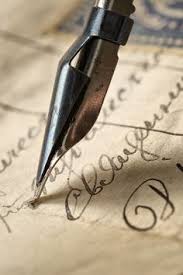Umberto Eco on Marking Personal Books
 I love books. I love the process of opening a new book. I love the smell of the pages. It has become a sort of liturgy when I purchase a new book: I read the outside, I slowly break in the book, and the world ceases to function as I dive into another world. Books become a place where ideas await themselves to be understood, to be entertained, to be developed further.
Umberto Eco offers comments on how to use personal books while researching.
I love books. I love the process of opening a new book. I love the smell of the pages. It has become a sort of liturgy when I purchase a new book: I read the outside, I slowly break in the book, and the world ceases to function as I dive into another world. Books become a place where ideas await themselves to be understood, to be entertained, to be developed further.
Umberto Eco offers comments on how to use personal books while researching.
If the book is yours and it does not have antiquarian value, do not hesitate to annotate it. Do not trust those who say that you must respect books. You respect books by using them, not leaving them alone. Even if the book is unmarked, you won't make much money reselling it to a bookseller, so you may as well leave traces of your ownership.
Each one of my books contain large amounts of marks and comments. They detail what interested me at a given time. Even when I revisit them, I am often reminded of how much my knowledge of a topic has grown as well as remember what affect the particular book had on me when I first read them.
Umberto Eco, How to Write a Thesis, trans. Caterina Mongiat Farina and Geoff Farina (Cambridge, MA: MIT Press, 2015), 125–26.




